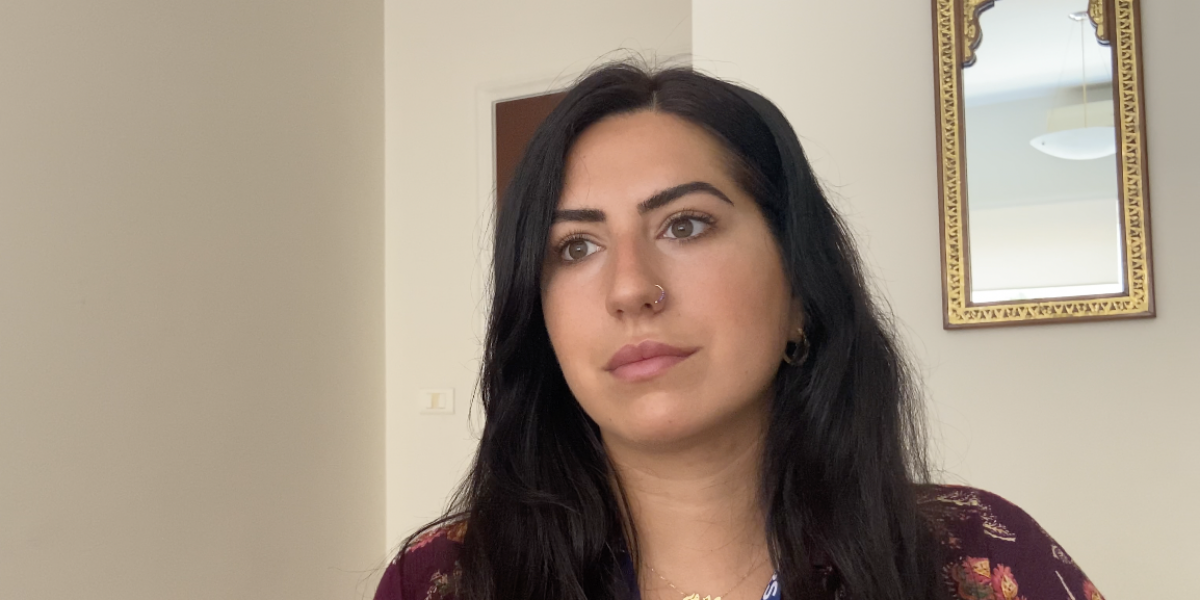Meet Carmen, the director behind ‘Dear Neighbor’
05 July 2023|Chloe Gunther

On June 20th Carmen Moreno the Communication Director at JRS Middle East and North Africa (MENA) released Dear Neighbor, a documentary series that interviews six refugees located in Jordan, Lebanon, Iraq, and Syria.
From a Sudanese rapper to a car mechanic in Lebanon, from a 12-year-old Syrian innovator to a young woman paving the path for girls in sports, each story is unique. But resilience is the common theme.
For this month’s INSIDER, we are going behind the scenes in a conversation with Moreno to learn how Dear Neighbor came to be and what she hopes audiences will learn from it.
“I started working with refugees and forcibly displaced people because I believe that our home is the only place in which we really feel safe and protected. As a human, I cannot image a worse situation than having to flee your country and leave your home,” Moreno said, reflecting on what motivates her. “I felt the need, or the responsibility, as a human being to support these people in such difficult circumstances.”
In addition to the devastating circumstances that force displacement, refugees face mental, societal, and economic challenges that often stem from discrimination. When asked what is particularly challenging in her role, Moreno talked about how difficult it can be to bear witness to each person’s story and not be able to do more to help.
“We do our best, as an NGO of course, but there are certain limitations and things you cannot do and it is quite frustrating especially [regarding] fair treatment, discrimination…particularly when it comes from the institution or the host states,” she said.
Throughout her career in communications, Moreno noticed that refugees were always depicted in a particular way. Dear Neighbor builds a bridge between cultures, communities, and countries and works to combat discrimination.
“I was a bit tired of seeing almost always the same image and stereotype of refugees or displaced people, seen as just helpless victims, recipients of help and always dependent on humanitarian aid,” Moreno said.
“Above all they are human beings like you and me and they have the same rights, the same concerns but,” she paused, “not the same daily struggles because they face even more.”
Several refugees featured in Dear Neighbor noted how discrimination has impacted their ability to rebuild their lives in a new city. Elham, a young Somali woman now living in Jordan, is working towards attending university. But she has been denied access to scholarships because the applications do not recognize her nationality.
“I want to pursue my education, I want to graduate from university as others, but I cannot get this chance.” Elham says in her Dear Neighbor interview. In the meantime, Elham has become a remarkable role model to the girls in her refugee and the Jordanian community. “We are providing a safe space for girls because it is their right to play,” she explained.
Moreno wanted to show more of the strong, creative, and determined characteristics of the refugees she works with. “I think I succeeded in showing this,” she said, “because each and every refugee or displaced person’s story I filmed has a special meaning and power.”
“[Refugees] are braver than regular people but they have the same rights and the same dreams. They are full of skills and abilities to contribute to the new societies they are coming to,” Moreno said.
“I felt something really special when working on this project while filming with these people, with these neighbors,” Moreno said, reflecting on the sense of shared humanity that emanates from Dear Neighbor.
Moreno hopes audiences will feel inspired to “build a better society where we [find] neighbors here, next to us, there in the US, the Middle East, or wherever we are.”
“There is something that we all share as humans, no matter your religion, cultural background, country, race, we all share something which is that we try to take care of the people we are close to, right? Our family, our friends, even our neighbors, that is why this is the title of this project because I wanted to show that we are all neighbors in this world,” Moreno said.



